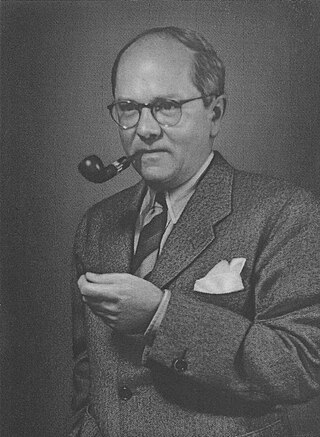
Richard Armstrong Whiting was an American composer of popular songs, including the standards "Hooray for Hollywood", "Ain't We Got Fun?" and "On the Good Ship Lollipop". He also wrote lyrics occasionally, and film scores most notably for the standard "She's Funny That Way".
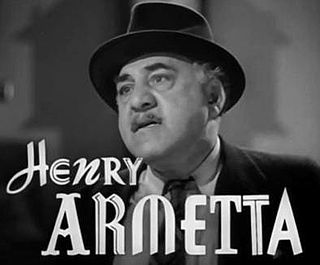
Henry Armetta was an American character actor who appeared in at least 150 American films, beginning in silent movies. His last film was released posthumously in 1946, the year after his death.

The Big Store is a 1941 American comedy film directed by Charles Reisner and starring the Marx Brothers that takes place in a large department store. Groucho appears as private detective Wolf J. Flywheel.
Paris is a musical with the book by Martin Brown, and music and lyrics by Cole Porter, as well as Walter Kollo and Louis Alter (music) and E. Ray Goetz and Roy Turk (lyrics). The musical, which premiered on Broadway in 1928, was Porter's first Broadway hit. The musical introduced the song "Let's Do It, Let's Fall in Love" sung by the show's star, Irene Bordoni. The story involves a young man from a very proper family in Newton, Massachusetts whose mother is horrified by his intention to wed a French actress.
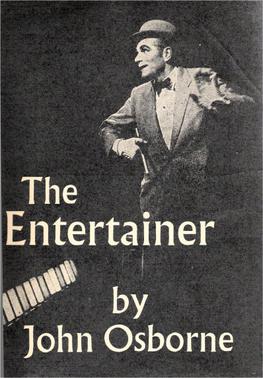
The Entertainer is a three-act play by John Osborne, first produced in 1957. His first play, Look Back in Anger, had attracted mixed notices but a great deal of publicity. Having depicted an "angry young man" in the earlier play, Osborne wrote at Laurence Olivier's request about an angry middle-aged man in The Entertainer. Its main character is Archie Rice, a failing music-hall performer. Years later, Tony Richardson, who directed The Entertainer's premiere season, described Archie as "the embodiment of a national mood ... Archie was the future, the decline, the sourness, the ashes of old glory, where Britain was heading". The first performance was given on 10 April 1957 at the Royal Court Theatre, London. This theatre was well-known for its commitment to new and non-traditional drama, and the inclusion of a West End star such as Olivier in the cast caused much interest.
"P.S. I Love You" is a popular song with music by Gordon Jenkins and lyrics by Johnny Mercer. published in 1934.
"Let's Call the Whole Thing Off" is a song written by George Gershwin and Ira Gershwin for the 1937 film Shall We Dance, where it was introduced by Fred Astaire and Ginger Rogers as part of a celebrated dance duet on roller skates. The sheet music has the tempo marking of "Brightly". The song was ranked No. 34 on AFI's 100 Years...100 Songs.
"How About You?" is a popular song composed by Burton Lane, with lyrics by Ralph Freed. It was introduced in the 1941 film Babes on Broadway by Judy Garland and Mickey Rooney.

Isadore Borsuk, better known as Bobby Breen, was a Canadian-born American actor and singer. He was a popular male child singer during the 1930s and reached major popularity with film and radio appearances.

"I'll Be Around" is a song recorded by the American R&B vocal group The Spinners. It was co-written by Thom Bell and Phil Hurtt and produced by Bell.
"Spring is Here" is a 1938 popular song composed by Richard Rodgers, with lyrics by Lorenz Hart for the musical I Married an Angel (1938), where it was introduced by Dennis King and Vivienne Segal.
"Macushla" is the title of an Irish song that was copyrighted in 1910, with music by Dermot Macmurrough and lyrics by Josephine V. Rowe.
Follow Your Heart is a 1936 American musical film directed by Aubrey Scotto and starring Marion Talley, Nigel Bruce and Luis Alberni. It was distributed by Republic Pictures.

Make a Wish is a 1937 American musical comedy film directed by Kurt Neumann and starring Bobby Breen, Basil Rathbone and Ralph Forbes.

Vivienne Osborne was an American stage and film actress known for her work in Broadway theatre and in silent and sound films.
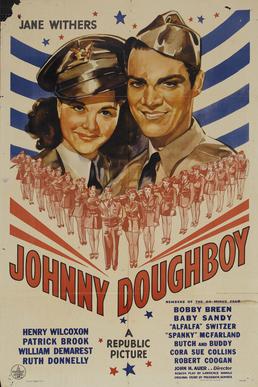
Johnny Doughboy is a 1942 American black-and-white musical comedy film directed by John H. Auer for Republic Pictures. It stars Jane Withers in a dual role as a 16-year-old actress who is sick of playing juvenile roles, and her lookalike fan who is persuaded by a group of "has-been" child stars to perform with them in a U.S. troop show. The film features cameos by ex-child stars Bobby Breen, Carl "Alfalfa" Switzer, George "Spanky" McFarland, Baby Sandy, and others. It received an Academy Award nomination for Best Musical Score.

Fisherman's Wharf is a 1939 American drama film directed by Bernard Vorhaus from a screenplay by Bernard Schubert, Ian McLellan Hunter, and Herbert Clyde Lewis. The film stars Bobby Breen, Leo Carrillo, Lee Patrick, and Slicker, "the silly seal". Produced by Sol Lesser for RKO Radio Pictures, who also distributed the film, it was released on February 3, 1939.

The Devil's in Love is a 1933 American pre-Code drama film directed by William Dieterle and written by Howard Estabrook. The film stars Victor Jory, Loretta Young, Vivienne Osborne, David Manners, C. Henry Gordon and Herbert Mundin. The film was released on July 21, 1933, by Fox Film Corporation.
The Climax is a 1930 American thriller film directed by Renaud Hoffman and written by Lillian Ducey, Julien Josephson, Leslie Mason and Clarence Thompson. The film is adapted from the play of the same name by Edward Locke. The Climax stars Jean Hersholt, Kathryn Crawford, LeRoy Mason, John Reinhardt and Henry Armetta. The film was released on January 26, 1930, by Universal Pictures.
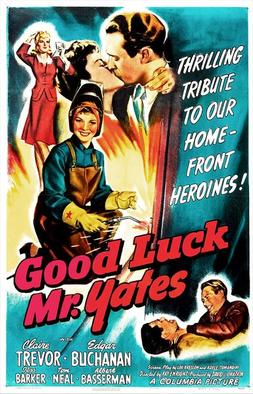
Good Luck, Mr. Yates is a 1943 American drama film directed by Ray Enright and written by Lou Breslow and Adele Comandini. The film stars Claire Trevor, Jess Barker, Edgar Buchanan, Tom Neal, Albert Bassermann and Henry Armetta. The film was released on June 29, 1943, by Columbia Pictures.












